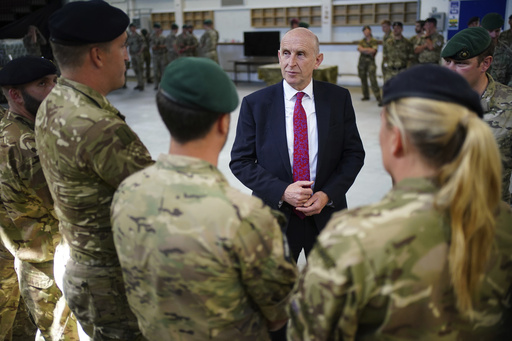
LONDON — A newly announced government compensation initiative will provide financial support of up to £70,000 (approximately $89,300) to British military veterans who faced discharge or discrimination based on their sexual orientation or gender identity. This program was unveiled on Thursday.
Before the year 2000, armed forces personnel identified as lesbian, gay, or transgender were compelled to leave the military under policies that deemed them unfit for service. Additionally, many endured harsh inquiries regarding their sexual orientation, leading to severe repercussions.
“The historical treatment of LGBT veterans represents a moral failure for our country,” stated Defense Secretary John Healey during the announcement of the compensation scheme. “The government is committed to rectifying these past injustices and acknowledging the pain that many individuals experienced.”
Last year, former Prime Minister Rishi Sunak expressed regret over the historical mistreatment faced by gay service members and embraced the findings of an independent review that recommended offering financial restitution. The recent announcement allocates a total of £75 million towards this compensation initiative.
Veterans who were removed from military service due to their sexual orientation or gender identity will receive an initial payment of £50,000. Furthermore, additional compensation amountsing to £20,000 may be granted to those who faced adverse effects within the military as a result of the discriminatory policies.
However, some advocates for gay veterans argue that the compensation efforts fall short.
Craig Jones, the head of the charity Fighting with Pride, voiced his concerns, suggesting that the proposed sums are inadequate in relation to the suffering endured by service members. “During my service, I witnessed many colleagues being escorted away by the Special Investigation Branch of the Royal Military Police, and it was heartbreaking to see,” Jones shared. “I was fortunate not to have faced such treatment myself, yet it has been both a privilege and an honor to return and support those who were not as fortunate.”

